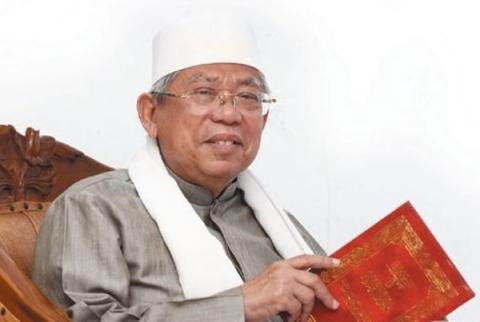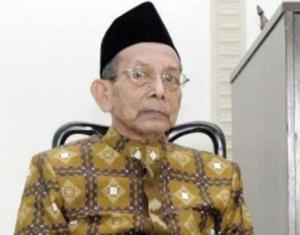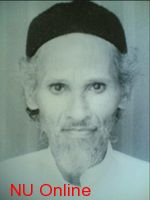A warrior constantly propapagating Islamic teachings
NU Online · Ahad, 1 November 2009 | 04:30 WIB
The Sultanate of Gowa is one of the Islamic empires located in South Sulawesi. The people of this kingdom are from the Makassar tribe staying in the south end and the west coast of Sulawesi. The kingdom is located in the area which is now known as Gowa and some surrounding regencies, including Makassar Municipality.<>
Muhammad Yusuf was educated in accordance with Islamic tradition, taught Arabic, fiqh, tawhid and religious sciences since his childhood. As a son of a noble family, Muhammad Yusuf had opportunity to pursue education by studying from the leading scholars, including the opportunity to study in educational centers renowned in the time.
Because one of good religious education centers was located in Cikoang, as a son of the noble family, Muhammad Yusuf had the opportunity to study there. Cikoang at that time was the settlement of religious teachers. They were the families of Arab sayyids believed to be descendants (dzurriyat) of Prophet Muhammad. At the age of 15 years, in Cikoang Muhammad Yusuf studied to a Sufi, master of Sufism, religious teachers, and travelling preachers. Some of his prominent teachers were Jalaludin al-Sheikh Aidit, Sayyid Al-Thahir Ba'lawi and Daeng Ri Tassamang.
Geographically, Cikoang at present is included in Mangarabombang subdistrict Talakar regency which is located in the southern of South Sulawesi and is 60 km from Makassar. Until now, there has been a great ritual so-called as Maulid Akbar Cikoang or locally called as Maudu which is a celebration to commemorate the birth of Prophet Muhammad. In this celebration. a variety of cultural attractions are performed along with religious rituals which are held every year especially in the month of Rabi'ul-Awwal.
Preaching and Traveling
Following his return from studying from Cikoang Muhammad Yusuf married a daughter of the Sultan of Goa. At the age of 18 years, Muhammad Yusuf began traveling in order to study. In 1644, by riding on a Malay boat, Muhammad Yusuf went to Mecca to perform hajj and deepened religious sciences in the Middle East.
In accordance with the route of the Malay boat stopping at various ports of the Nusantara kingdoms in that time, Muhammad Yusuf visited various regions. One of of the regions which is later very important in the journey of life and the struggle of Muhammad Yusuf is Banten, a trade port controlled by the Islamic kingdom of Banten. As a nobleman, Muhammad Yusuf made a friend with the son of a prince who later ruled, namely Sultan Agung Tirtayasa (1651-1683), the last ruler of the Sultanate of Banten. Besides Banten, Mohammad Yusuf also ever visited Aceh on the way of his traveling.
From Aceh, Yusuf Muhamamad then went to Gujarat, an area that has become one of the Indian states since May 1, 1960. Gujarat is known as a place of the saints, propagators of Islam in the archipelago, including some nine saints who later lived in Java.
In Gujarat it was publicly reported that Muhammad Yusuf met with Sheikh Nuruddin Ar-Raniri, one of the advisers of Sultonah Shofiyatuddin, a queen in Aceh. Sheikh Nuruddin Ar-Raniri is a statesman, jurist, theologian, mystic, important historian and figure in the history of Malay in the 17th century. His real name was Nur ad-Din bin Ali bin Hasanji bin Muhammad Hamid Ar-Raniri. He was born in Ranir (Rander), Gujarat, India, and claimed to have the blood of Quraish,
Some opinions that the meeting between Muhammad Yusuf and Sheikh Nuruddin Ar-Raniri was when Muhammad Yusuf visited Aceh. This is based on the opinion stating that Sheikh Nur al-Din al-Raniri died on 22 Zulhijjah 1069 H/21 September 1658 in Aceh. In the days before 1658, Muhammad Yusuf met with Sheikh Nuruddin Ar-Raniri in Aceh. From Sheikh Nuruddin Ar Raniri, Muhammad Yusuf studied more subjects and followed a sufi order, Qodiriyah.
From Aceh, Muhammad Yusuf later left for Gujarat, Yemen, Damascus (Syria) and finally left for Mecca and Madina. It is said that Muhammad Yusuf had traveled to Istanbul (Turkey) called in the tambo-tambo Malays as "Rum Country". In Yemen, Muhammad Yusuf studied to Sheikh Abdullah Muhammad ibn Abd al-Baqi,
In Damascus, Muhammad Yusuf studied to Sheikh Abu Ayyub al-Barkah bin Ahmad bin Ayyub al-Khalwati Al-Quraisyi. It is said that his teacher gave a laqob to Muhammad Yusuf with "Al-Makassari." Sheikh Abu Al-Barkah is a teacher giving him a 'lisence' of the Khalwatiyah order. Later, following his role as a mursyid of the Khalwatiyah order, Muhammad Yusuf was later known as Sheikh Yusuf Tajul Khalwati.
Since living in the two holly cities (Mecca-Madina) Muhamamd Yusuf had been considered as a religious teacher by the Malay-Indonesian people who performed hajj to the Holy Land. It is said that Muhammad Yusuf became a teacher and was later called as Sheikh Muhammad Yusuf al-Makassari. Even he reportedly ever married one of the descendants of Imam Shafi'i in Mecca who died when she gave a birth. Before returning back to Indonesia, Sheikh Muhammad Yusuf al-Makassari married a woman from Sulawesi in Jeddah.
Struggling Against Colonialism
Along with his two wives, his first wife who accompanied him during the traveling and his third wife he just married while staying in Jeddah, Sheikh Yusuf al-Makassari later returned home. Some sources mention that Sheikh Yusuf al-Makassari never returned to Gowa, but settled in Banten. While some opinions mention, after the defeat of the Sultanate of Gowa in the war against the Dutch, Sheikh Yusuf al-Makassari went to Banten, to his friend who became a king, Sultan Agung Tirtayasa.
In Banten, in the 1670s Sheikh Yusuf al-Makassari was appointed as a mufti (spiritual advisor) with his students from various regions, including 400 people from Makassar, led by Ali Karaeng Bisai. Sheikh Yusuf al-Makassari stayed there and later married a princess of Sultan Agung Tirtayasa.
Terpopuler
1
Kemenag Tetapkan Gelar Akademik Baru untuk Lulusan Ma’had Aly
2
LKKNU Jakarta Perkuat Kesehatan Mental Keluarga
3
Mahasiswa Gelar Aksi Indonesia Cemas, Menyoal Politisasi Sejarah hingga RUU Perampasan Aset
4
3 Alasan Bulan Kedua Hijriah Dinamakan Safar
5
Anggapan Safar sebagai Bulan Sial Berseberangan dengan Pandangan Ulama
6
Kopri PB PMII Luncurkan Beasiswa Pendidikan Khusus Profesi Advokat untuk 2.000 Kader Perempuan
Terkini
Lihat Semua














